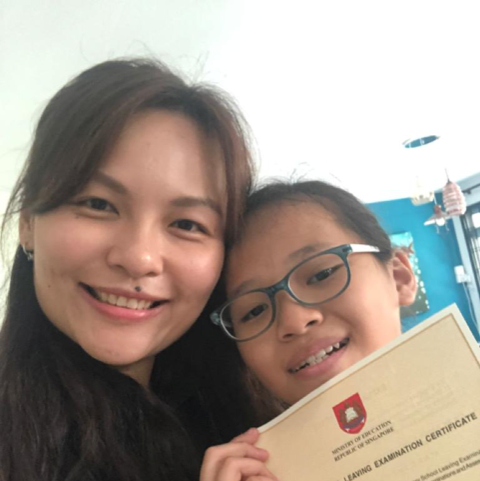Software entrepreneur Shi Ruxin is no stranger to making unconventional decisions.
From her choice of education pathways, to her switches in profession, she has surprised friends and family constantly with her brow-raising updates.
The signs were there from her teens when she rejected the chance to enrol at Hwa Chong Junior College, even though she did well enough to at her ‘O’ Levels.
Instead, she accepted a Navy sponsorship to study electronics and electrical engineering at Ngee Ann Polytechnic. This was in the late 1980s, a time when giving up a coveted spot at the junior college would have been seen as foolish.
But it made perfect sense to Ms Shi.
The sponsorship would pay for her school fees, give her a monthly allowance, and offer a job upon graduation – all good to Ms Shi, who needed the resources.
She had grown up in a two-room flat in a family of five. Her aunt and uncle would sometimes sleep over, which meant they packed “like sausages” in the common room and living room, leaving her to study on the kitchen floor at night. It was a family routine to wake up at 5am every day to help their mother at her hawker stall.
For extra pocket money, Ms Shi gave tuition from the age of 15, and didn’t stop even while working full-time with the Navy as an electronics engineer.
Sailing towards accounting exams and more open doors
Despite a packed schedule of work and tuition, which made for a decent income, Ms Shi decided to squeeze time out for an accounting certification.
Sitting for the ACCA qualification exams happened quite by chance. Her friend had changed her mind about completing the programme and offered to sell Ms Shi her textbook at half-price. Ms Shi had no clue what she was in for, but she saw no harm in furthering her learning and widening her options.
With her by-now trademark dogged determination and commitment, she completed the qualifications in 2.5 years at a fraction of the cost through self-study: She remembers paying under $6,000, a stark difference from the five-figure sums that candidates usually spent on exams and guided classes.
One shortcut she took was that if she failed a paper, she would re-take it the following semester on top of her usual number of new modules. She did this on a rolling basis until she cleared all her modules.
With the feather in her cap, she landed a job in Arthur Andersen, what was one of the Big 6 accounting firms back then. It was a huge accomplishment and adjustment for her, she recounts, because her peers there were mostly university graduates with second upper class honours.
Wrong fit, job loss… and a business is born
The joy was short-lived. After five months, she found the environment too competitive, and left.
“Most people would have thought, ‘Let me stick to this. Maybe one day I can become a partner.’ I chose the route where I need to be happy,” Ms Shi reflects. “As long as I enjoy the journey, it doesn’t matter what my end goal is. I don’t want to be too uptight about it.”
Like her segue into accounting, moving into software development was serendipitous. After leaving Arthur Anderson, she found work at various electronics MNCs before joining a software subsidiary of Fujitsu as a business consultant and moving into regional sales. Unfortunately, she lost her job during the mid-2009s economic crisis, and nobody responded to the 100 job applications she sent out thereafter, she says. As a last resort, she fell back on her accounting chops and ran a newspaper advertisement to offer accounting services.
She landed multiple local SME clients this way. While she was tending to their accounting needs, the problem-solver in her witnessed several common struggles faced by their finance teams. That’s when she relied on the software architecture skills she had picked up in her previous role and, with the help of her IT developer husband, built a highly configurable solution for them.
From there, her company Xintesys was born, and it has since grown into a multi-million-dollar company. She prides herself in how it provides hybrid flexible work environments that promotes work-life integration to parents with young children, retirees, those who lost their jobs, as well as students who need to work while studying, recalling the tough times she overcame to get to where she is today.
‘Define success by our own yardsticks’
Looking back at her journey, it is no wonder that her son, 24-year-old Teddy Zhuang now displays her enterprising ways. When he was 16, he developed a fascination for aeroplanes. On his own accord, he signed up with the Singapore Youth Flying Club to learn how to fly a plane. He earned a personal pilot licence, which gave him a competitive advantage when he applied for the air force. He beat thousands of candidates for a coveted pilot trainee position and was even selected to go to France to train as a Fighter Pilot.
But when a back injury meant that he could no longer continue his vocation, Teddy apply for a spot in a local university. He also took the initiative to apply for a National University of Singapore scholarship (which he received), went on to get certified in financial advisory whilst an undergraduate. His mother believes that his self-motivation and discipline came from having a deep understanding since young that actions have consequences.
“I used to have a lot of rules. Like, Wednesday is laundry day. If you don’t wake up early to take your laundry out and place it in the kitchen, you won’t have clean clothes to wear,” Ms Shi shares. “These are some of the examples that helped teach the value of discipline. A combination of these little things in life gives us the results that we see today.”
She credits her mother for her values and strong work ethic; she was “hardworking, consistent, loving, and had an unbreakable spirit”, she adds.
Success for Ms Shi has never been about money, but about living life on her own terms. “I want my children to see this is how we should live our lives. Rather than following the rat race and comparing our material possessions with our friends to feel successful, it’s up to us to define our own yardstick.”



.jpg)


